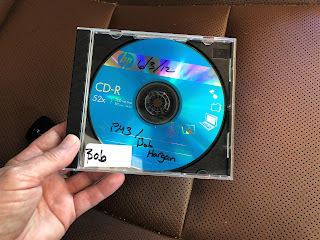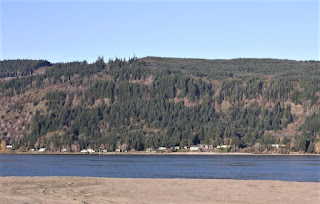I was visiting country friends
this morning. The temperature was already 94-degrees, but humidity was around 49%;
dressing for the weather is easy-peasy right now, as melting makeup is not a
concern in this moment of time 😉
One of the gathered friends
mentioned the wildfire that was raging along Ocean Beach Highway, in the Flandersville
region. When they described the location, all I could think of was that it had
to have been sparked sometime before or during the sun slipping over the horizon
the preceding evening, because fires do not start by themselves in the cool of
early morning hours.
I was also thinking that a
natural caused wildfire is actually beneficial to the land, as well as the
animals that live in that scorched earth area … the earth can rejuvenate, and
the animals can return to the thinned-out region where habitate will offer
fresh starts … and abundant food supply as the burned areas begin to freshen up
with new growth.
I dount {climate change} has anything at all to do with wildfires. Natural wildfires have been happeing since the dawn of time ... the Earth is designed for cycling natural happanstances.
But I’m not stupid: I know
wildfires – natural or not – create a lot of chaos – and pose a very
serious risk to the firefighters. I still remember a friend who died fighting a
wild fire in 1976. The memory was very poignant this afternoon when I thought
of the volunteer firefighters battling those searing flames in today’s hot
weather.
The country visit was
enjoyable; and though some worried about the {closeness} of the raging fire …
it really is no that close to where we were – or even close to where some of
them had homes. It seems very close because driving distance is shorter than
land travel. But the fire really is in an isolated area.
The raging wildfire is
located on a steep hillside, high above the highway – and nowhere near Flandersville
homes; it’s not a danger to anything except the forested hillside.
After lunch, we all went our
separate ways homeward. I slipped Bob’s testimonial CD in, so I could hear Bob’s
voice, and decided to slip over Beaver Creek Road to drive home through smokey Flandersville
😉
I wanted to see what was
what, instead of just taking word-of-mouth as truth. The smoke is generated too
high on the steep rocky, and heavily timbered hillside, to be camp fire fallout:
it’s too isolated.
Flandersville is where the
mucky-mucks live (Doctor’s families, and such); in the mid-1970’s the
Flandersville community divided into two “bedroom communities” = city
working commuters – and changed their community Names to ‘Cape Horn’ (Cathlamet
end: richest inhabitants) & ‘Little Cape Horn’ (Longview end,
near County Line: inhabitants not so rich … but acting like it).
Flandersville
(aka ‘Cape Horn’ & ‘Little Cape Horn’ communities – name changes in
mid-1970’s): http://columbiariverimages.com/Regions/Places/flandersville.html
When I got home, I got
online to get more info about the fire. What I learned was (1)
the fire is still raging; it is fought 100% with manpower, hose lays, (and
helicopter water dumps) – but it is not 100% contained (2)
it’s burned through 10 acres so far – and will burn through more by this
time tomorrow if not brought under control (3) The difficult steep
terrain made it necessary to call in 8 crews to work the area: Fire District 1,
2 & 4; Cathlamet Fire Department (100% Volunteer operated); Cowlitz 2 Fire & Rescue; Washington
State DNR (Dept. Natural Resources); volunteer Inmate help; and the
Wahkiakum PUD (to deal with power lines) were all dispatched to the site
(4) Road delays will continue until the area is deemed {safe}: firefighters
will deal with the flames, and road crews will deal with loose, and rolling
debris (5) cause of fire will be investigated – and fire crews
will be working over the area through next week (6) Currently
homes are not in any fire danger.
I’ll be going that way again all of this week. So, I’m hoping
and praying the fire is contained. Soon 😉









..JPG)
%20via%20WA-4%20W.jpg)


No comments:
Post a Comment